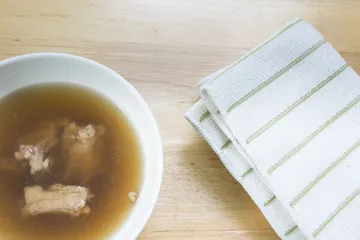Choose 2 criteria for lunch and avoid these "fattening" foods
People must replenish energy through diet, and eating is very important to a person.
Among the three meals a day, lunch is the most important. It provides most of the energy for people's daily activities. Only when you eat lunch can you feel more energetic and physically strong.
For people who want to lose weight, lunch is also crucial. Only by eating the right lunch can weight loss be effective. It is also necessary to avoid eating lunches that are not conducive to weight loss or even gain weight.

So what lunches should you avoid during your weight loss period, and how should you match them?
1. Avoid eating lunch with excessive fat
Oils can provide energy for people, but excessive fat will promote fat synthesis. Therefore, you should avoid eating lunches with excessive fat for lunch, such as spicy fragrant pot, dry pot, fried rice, fried food, etc. should be avoided as much as possible.
2. Avoid eating too many